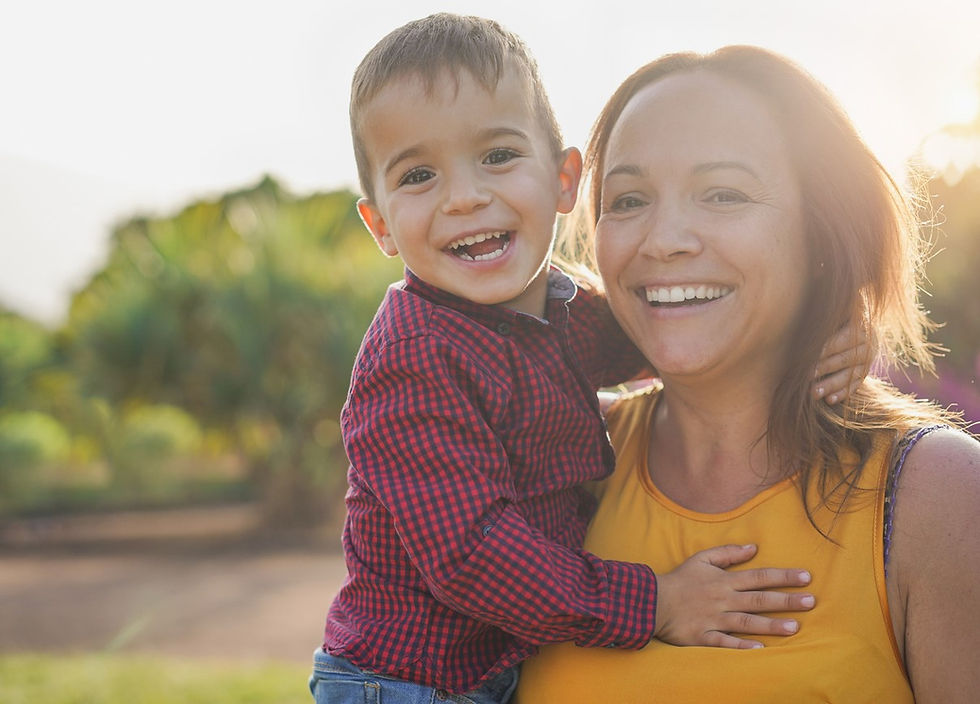Raising Teens: Hovering or Guiding?
- Nicole Young
- Oct 1, 2015
- 4 min read
Updated: Nov 16, 2021
My teenage son recently announced he’d read an article on “helicopter parents” for his English class. This was stated while negotiating his weekend plans, and said with a look and tone that implied the article was about us. When asked what that term meant to him, he said, “Parents who hover over their kids so much that the kids don’t learn to do things on their own, so they’re not prepared to be independent.” Ouch. We reassured him that we share the same goal: One day, he’ll be independent and living with someone other than his parents. Our conversation reminded me that it’s easy to blur the line between “hovering” and guiding. Ironically, our questions about his weekend plans were meant to gauge his readiness for greater independence, but all he could hear was the wop-wop-wop of helicopter blades. This monthly column provides tips for anyone who is helping raise children, based on the world-renowned Triple P – Positive Parenting Program, available to families in Santa Cruz County. If you have a question or idea for a future column, email me at triplep@first5scc.org. Dear Nicole, My son is in high school, and I’m not sure he’ll ever be ready to leave home. He’s a good kid but doesn’t think before he acts. He’s gotten in trouble for talking back to teachers, posting inappropriate things on social media, and pulling pranks at school. He says all his friends do it and adults make too big of a deal about it. I’m frustrated that he doesn’t take responsibility for his actions. What do you suggest? - Patricia Dear Patricia, I’ll bet many parents can relate to your situation! Teens often do things that seem impulsive, foolish or risky to adults. The part of the brain that’s responsible for impulse control, making decisions and regulating emotions is still “under construction” during adolescence — scientists now believe the brain reaches full maturity around age 25. So even when your son has the body of an adult and may be old enough to drive, vote or move away from home, his brain will still be playing catch up. Here are a few tips to prepare your teen for independence: Help your teen set goals for the future. Ask your son where he sees himself in three to five years, then help him set mini-goals that are steps toward reaching his bigger goals. Encourage him to set goals that are achievable (but not too easy) and meaningful to him – even if they are different from your goals for him. Whether he wants to continue his education, get a job, live alone or travel, he’ll need to learn how to plan ahead, identify options and take responsibility for the outcome of his choices. These skills come naturally to some people, while others must learn through trial-and-error. Sometimes the greatest sense of accomplishment comes from making a mistake and having to try again or work harder to achieve a goal. Help your teen think about the impact of his choices. Many teens lack impulse control or awareness about potential risks. It’s the nature of their developing brains. If your son is contemplating ways to meet his goals or wants to participate in activities you consider risky, ask questions that begin with “Have you thought about…” or “What would you do if…” to prompt him to plan ahead and anticipate different scenarios. Teach him to answer these questions before acting on an idea: “What are the positive and negative effects of doing this – for me or others? Is it really worth it? Is this the kind of person I want to be?” Have your teen practice making decisions. This is an important step in developing autonomy and self-discipline. Start with “low stakes” issues that have fewer risks (e.g. clothing, food, extracurricular activities). Let him know about any non-negotiable limits related to safety, school or family values. Then have a discussion about the options he’s considering and their pros and cons. Support his decision (as long as it’s within the limits), even if it’s different from what you would choose. As you both gain confidence in his decision-making abilities, try the same process for issues that could have more serious risks or repercussions (e.g. social activities, money, college, career). Final Thoughts: Helping teens become independent, responsible, capable young adults is no easy task, especially when they push the limits, act impulsively or cause us to worry about their safety. Yet our persistent guidance will eventually pay off when they become ready to live a purposeful, meaningful life independent of us. Nicole Young is the mother of two children, ages 11 and 15, who also manages Santa Cruz County's Triple P - Positive Parenting Program, the world's leading positive parenting program. Scientifically proven, Triple P is made available locally by First 5 Santa Cruz County, the Santa Cruz County Health Services Agency (Mental Health Services Act) and the Santa Cruz County Human Services Department. For more information, including classes and one-on-one meetings to help parents handle everyday parenting challenges, visit http://triplep.first5scc.org, www.facebook.com/triplepscc or www.youtube.com/triplepsantacruzco. To find a Triple P class or practitioner, contact First 5 Santa Cruz County at 465-2217 or triplep@first5scc.org.




Comments